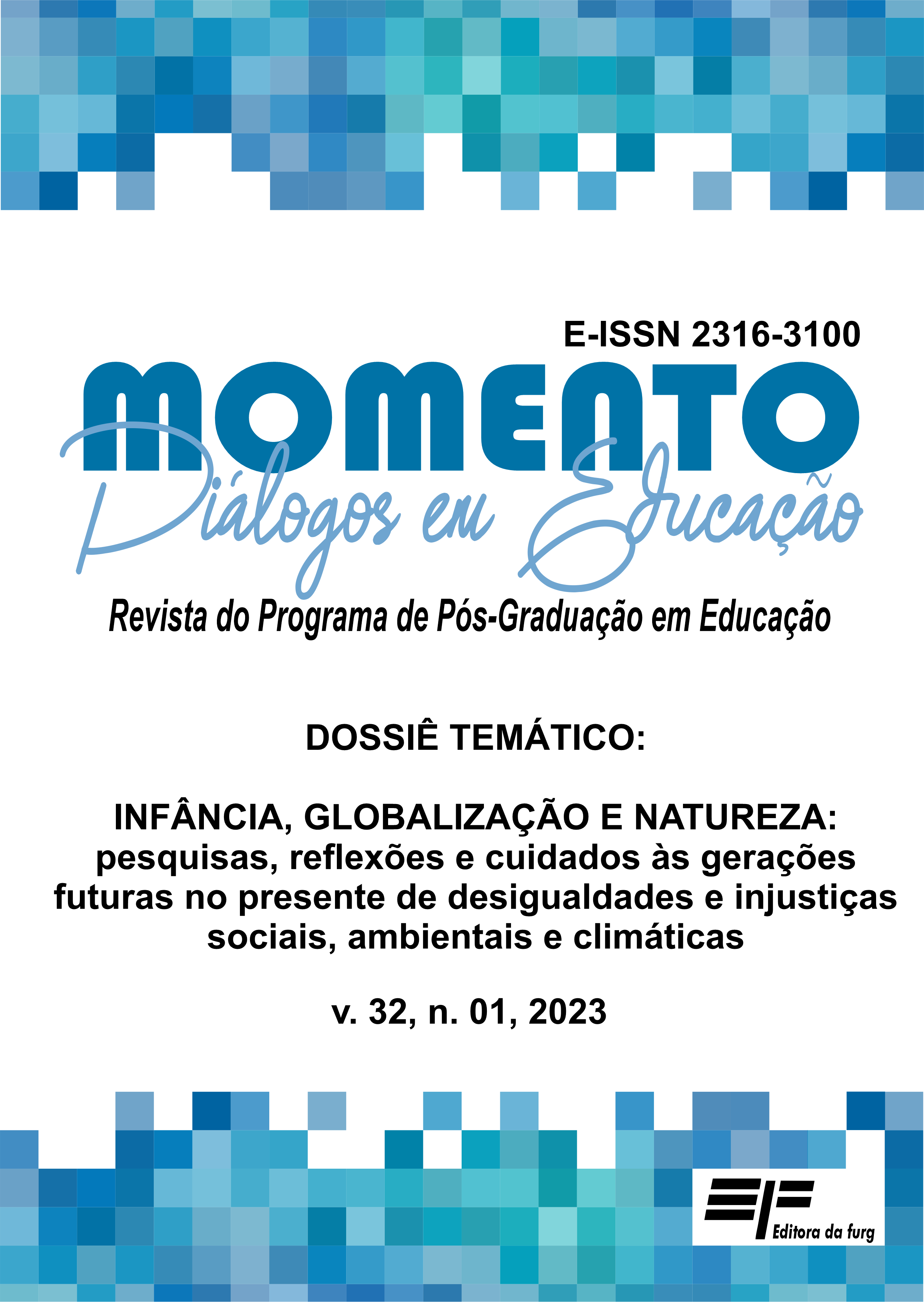DIALOGUE IN DIGITAL SOCIAL NETWORKS FOR EDUCATION
an analysis based on Paulo Freire's reflections
DOI:
https://doi.org/10.14295/momento.v32i01.14173Keywords:
Information and Communication Technology, Teaching over the Internet, Dialogue, Paulo Freire methodAbstract
Dialogue is not simply transmitting information; it only occurs with the other and requires a practical transformation. Based on the Theory of Dialogical Action proposed by Freire (1987), this article aims to understand how digital social networks can be used to promote dialogue in favor of education. Theoretical contributions such as the organization of society in networks (CASTELLS, 2020) and academic research on the approximations between digital media and education (GOMEZ, 2015) (MARTINO, 2015) also helped to reference this study. In it, phenomenology was used as a method, in which exchanges between Instagram users were analyzed when sharing content about scientific research. The results showed that the interactions established on Instagram present characteristics of dialogue, but cannot be classified as a dialogic action. The problem, however, is not with the digital social network, but with the use made of it.
Downloads
References
BARABÁSI, Albert-László. LINKED – A Nova Ciência dos Networks. 1. ed. São Paulo: Leopardo editora, 2009.
CASTELLS, Manuel. A sociedade em rede. 22. ed. São Paulo: Paz e Terra, 2020.
CRESWELL, John W. Investigação Qualitativa e Projeto de Pesquisa. 3. ed. Porto Alegre: Penso, 2014.
FREIRE, Paulo. Pedagogia do Oprimido. 17. ed. Rio de Janeiro: Paz e Terra, 1987. Disponível em: <https://pibid.unespar.edu.br/noticias/paulo-freire-1970-pedagogia-do-oprimido.pdf/view>.
GOMEZ, Margarita Victoria. Educação em rede: uma visão emancipadora. São Paulo: Cortez Editora e Instituto Paulo Freire, 2004.
______. Pedagogia da virtualidade: redes, cultura digital e educação. São Paulo: Edições Loyola, 2015.
HEIM, Michael. The metaphysics of virtual reality. New York: Oxford University Press, 1993.
JENKINS, Henry. Cultura da Convergência. São Paulo: Aleph, 2009.
LÉVY, Pierre. Cibercultura. 1. ed. São Paulo: Editora 34 Ltda., 1999. Disponível em: <https://www.giulianobici.com/site/fundamentos_da_musica_files/cibercultura.pdf>.
MARTINO, Luís Mauro Sá. Teoria das Mídias Digitais: linguagens, ambientes, redes. 2. ed. Petrópolis: Editora Vozes, 2015.
PINTO, Álvaro Vieira. O conceito de tecnologia. Rio de Janeiro: Contraponto, 2005.
TURKLE, Sherry. Alone Together. New York: Basic Books, 2011. v. 33.
WE ARE SOCIAL; HOOTSUITE. Digital 2021 Global Overview Report. . [S.l: s.n.], 2021. Disponível em: <https://wearesocial.com/uk/blog/2021/01/digital-2021-the-latest-insights-into-the-state-of-digital/>.
Downloads
Published
How to Cite
Issue
Section
License
Copyright (c) 2023 Momento - Diálogos em Educação

This work is licensed under a Creative Commons Attribution 4.0 International License.
À Revista Momento − Diálogos em Educação, ficam reservados os direitos autorais, de todos os artigos nela publicados.


